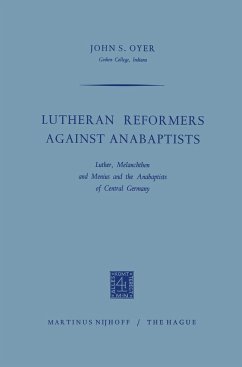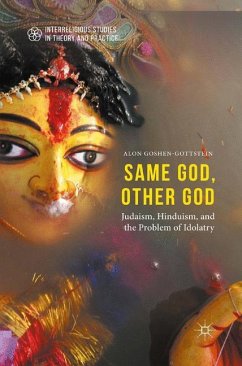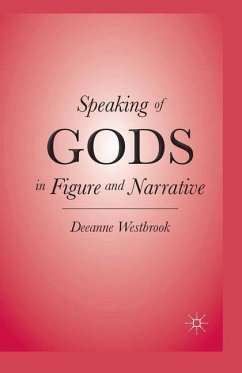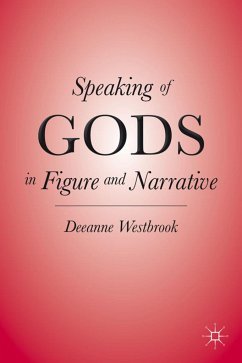
Lutheran Reformers Against Anabaptists
Luther, Melanchthon and Menius and the Anabaptists of Central Germany
Versandkostenfrei!
Versandfertig in 1-2 Wochen
39,99 €
inkl. MwSt.
Weitere Ausgaben:

PAYBACK Punkte
20 °P sammeln!
Until well into the nineteenth century scholars have repeated a tra ditional view of Anabaptism when they turn to Reformation history. They have regarded the Zwickau Prophets and Thomas Miintzer as the instigators of the movement. The radical disturbance caused by the Prophets and Miintzer in Wittenberg and the Saxon lands spread to Switzerland, there to plague Zwingli and his following. In both regions a radical spiritualism was the dominating element of the movement. Anabaptism reached its peak of development in the forceful establish ment of the Kingdom of Miinster. Most historians have dev...
Until well into the nineteenth century scholars have repeated a tra ditional view of Anabaptism when they turn to Reformation history. They have regarded the Zwickau Prophets and Thomas Miintzer as the instigators of the movement. The radical disturbance caused by the Prophets and Miintzer in Wittenberg and the Saxon lands spread to Switzerland, there to plague Zwingli and his following. In both regions a radical spiritualism was the dominating element of the movement. Anabaptism reached its peak of development in the forceful establish ment of the Kingdom of Miinster. Most historians have devoted the major part of their discourse on Anabaptism to this model of fanati cism. After the rebellion was suppressed a rather pious but nonetheless harsh converted priest named Menno Simons collected the dispersed elements and attempted to direct them into more peaceful channels. Other leaders, like David J oris, continued the radical spiritualism if not the civil disorder. In this picture of the movement historians have insisted on regarding more highly the similarities rather than the differences in religious ideas of men such as Miintzer, Storch, Carlstadt, Grebel, Manz, Sattler, Denk, Marpeck, Matthys, Jan van Leyden, Joris, and Menno Simons. Even a cursory perusal of the writings of the Reformers - particularly those of Luther, Melanchthon, Menius, and Bullinger - reveals the identity of this traditional picture with that of the sixteenth-century polemicists.












